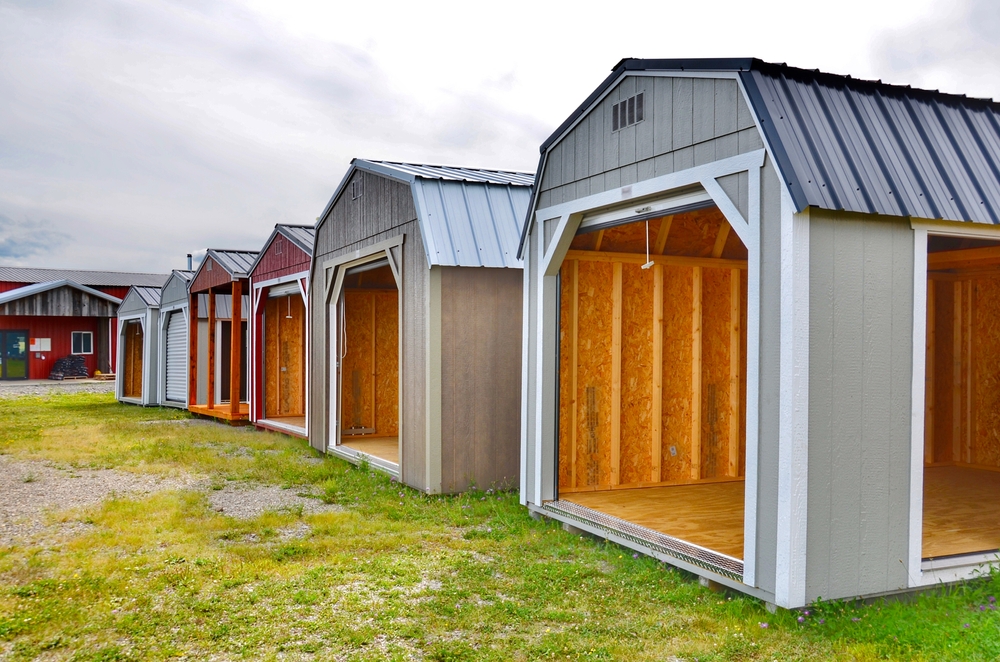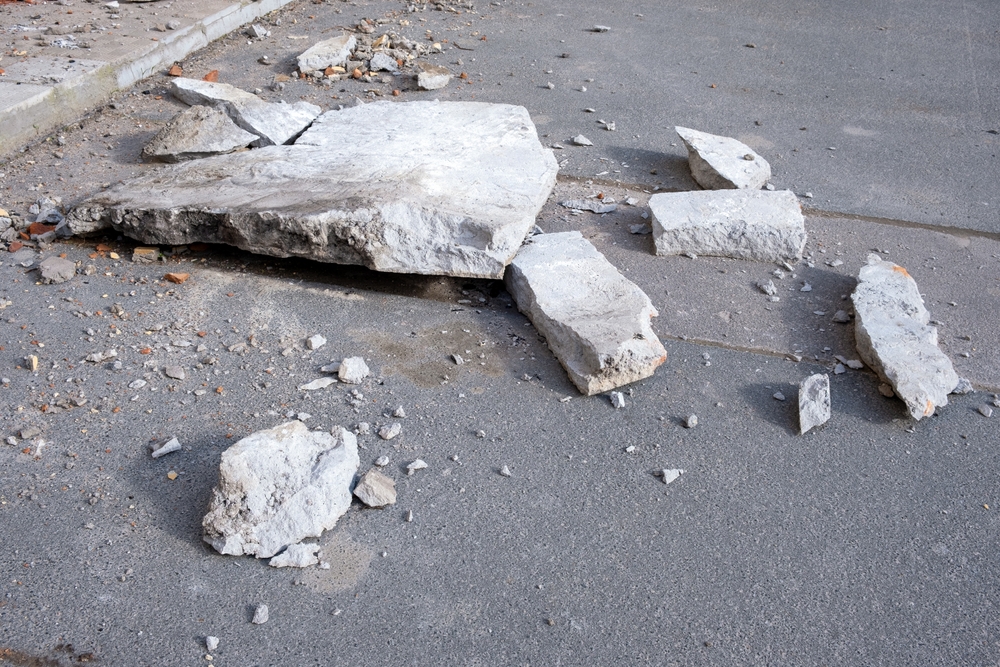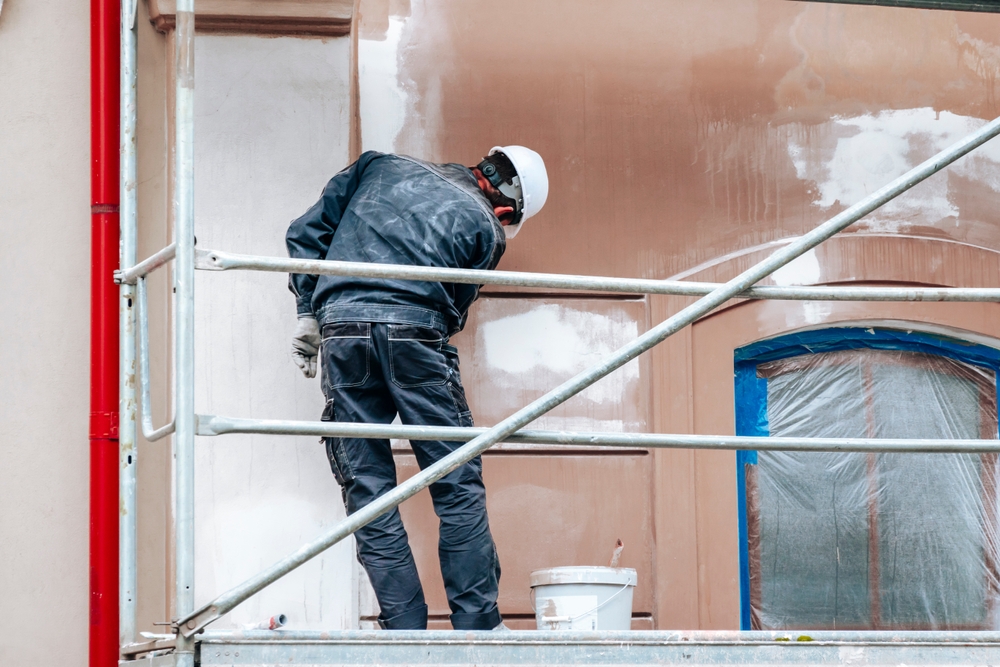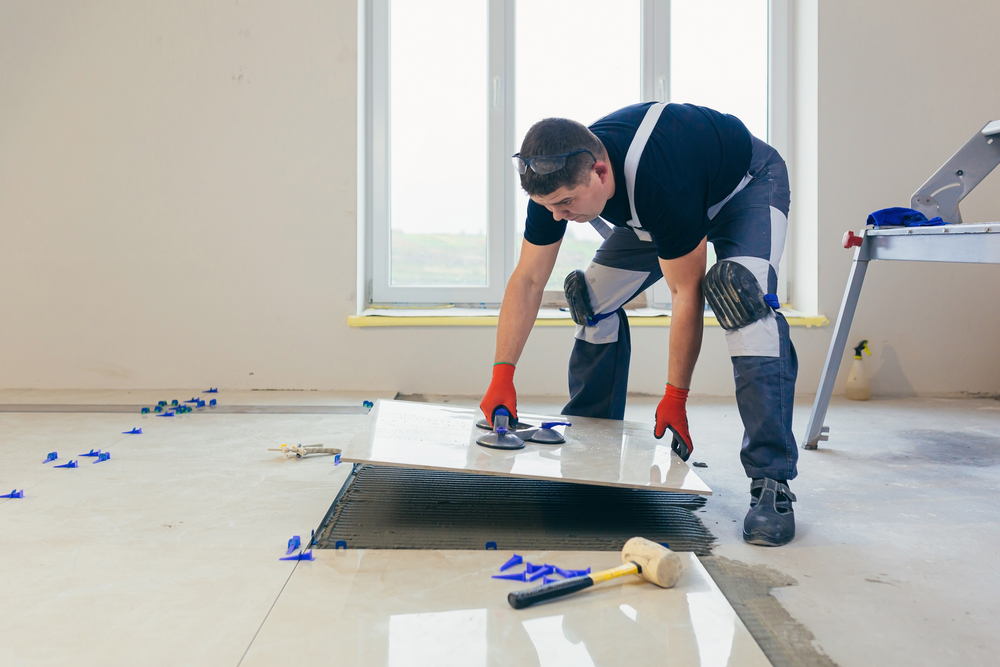February 6, 2024 - Benjamin Ehinger
Shed Removal: A Guide to Safe and Efficient Shed Dismantling
CALL NOW 844-762-8449
Shed removal is a process that can revitalize your outdoor space by eliminating an old or unwanted structure. Whether your shed is dilapidated, no longer needed, or you’re simply making room for a new one, understanding the steps involved in removing a shed is essential. This includes assessing the structure, determining whether to tackle the job yourself or hire professionals, and knowing the tools and safety precautions needed.
Consideration of waste management is a critical aspect of the shed removal process. Renting a dumpster can be a practical solution for a streamlined cleanup. A residential dumpster rental will accommodate the debris and materials from your shed, ensuring hassle-free disposal and minimizing trips to the dump or recycling center. By preparing properly and utilizing the right techniques and services, you can ensure your shed removal project is executed efficiently and safely.
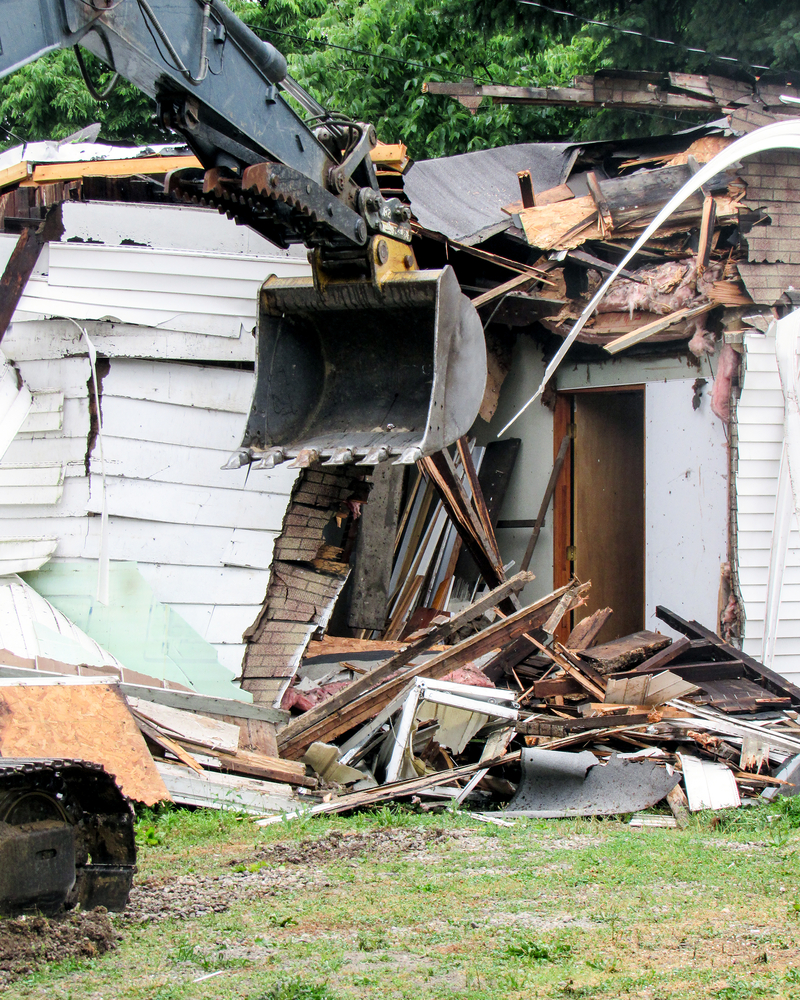 When removing your shed, it’s pivotal to choose the right demolition technique that aligns with safety protocols, the tools you have on hand, and the final disposition of the materials.
When removing your shed, it’s pivotal to choose the right demolition technique that aligns with safety protocols, the tools you have on hand, and the final disposition of the materials.
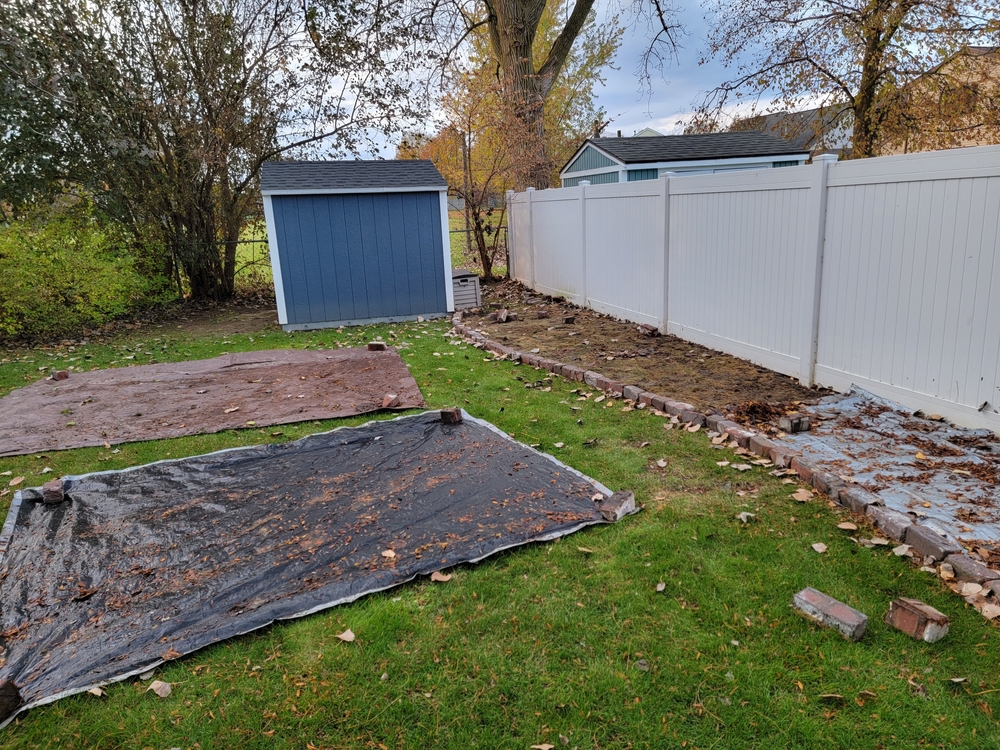 Once your shed removal is complete, it’s important to address the leftover debris and the condition of the space. A thorough site cleanup followed by landscaping restoration can revitalize your outdoor area.
Once your shed removal is complete, it’s important to address the leftover debris and the condition of the space. A thorough site cleanup followed by landscaping restoration can revitalize your outdoor area.
Remember, each project has its unique factors and challenges. For a more precise estimate, reach out to a local shed removal expert or consult demolition cost guides like this one to see what others have paid in similar situations.
Key Takeaways
- Shed removal enhances outdoor space and involves preparation and safety measures.
- Renting a dumpster facilitates efficient debris management during the project.
- Professional services are available for those who prefer not to undertake shed demolition themselves.
Understanding Shed Removal
When undertaking shed removal, your primary focus should be on safety and efficiency. It’s a straightforward process, but it requires careful planning. Here’s what you should know:- Preparation: Empty your shed of all contents before starting the demolition. Ensure you have the necessary tools and protective gear.
- Legalities: Check if you need permits for demolition and be aware of any local regulations regarding disposal.
- Methodical Demolition:
- Start by removing doors and windows to prevent breakage and potential injury.
- Proceed to dismantle the roof, cutting it into manageable sections where advisable.
- Take down the walls and frame, working from top to bottom to maintain structural stability.
- Finally, remove the flooring.
- Disposal: Understand the proper way to dispose of debris, which may entail renting a dumpster or taking materials to a local waste management facility.
- Cost Concerns: Remember the costs associated with removal can vary. If doing it yourself, your expenses will include tools, materials, and disposal fees.
Preparation for Shed Demolition
Before you begin the demolition of your shed, you need to prepare thoroughly. Proper preparation ensures efficiency and safety throughout the entire process.Safety Considerations
Your safety is paramount. Wear safety goggles, heavy-duty gloves, and steel-toe boots to protect against injuries. Additionally, you should have a first aid kit and a fire extinguisher nearby in case of emergencies.Tools and Materials Needed
To dismantle your shed successfully, you’ll need the following tools and materials:- Pry Bar: For removing roof and siding panels.
- Hammer: For general demolition tasks.
- Saw: Preferably a reciprocating saw for cutting through wood or metal.
- Sledgehammer: For knocking down wooden walls and frames.
- Heavy-duty Trash Bags: For debris and waste materials.
- Dumpster: Arrange for a dumpster rental to manage waste disposal effectively.
Shed Demolition Techniques
 When removing your shed, it’s pivotal to choose the right demolition technique that aligns with safety protocols, the tools you have on hand, and the final disposition of the materials.
When removing your shed, it’s pivotal to choose the right demolition technique that aligns with safety protocols, the tools you have on hand, and the final disposition of the materials.
Manual Dismantling
To manually dismantle your shed, carefully empty the shed of its contents before beginning any work to avoid injury or damage. Start with Removing Doors and Windows to facilitate easier access and reduce the weight of the walls.- Take off the Roof: Begin by detaching the roof covering and stripping down to the frame.
- Dismantle Walls: Progressively disassemble the walls by either prying off the panels or using a sledgehammer to knock them down safely.
- Remove the Floor: Depending on your shed’s design, the floor may be nailed or screwed down. Remove these fasteners to detach the floor from the foundation.
Mechanical Demolition
Mechanical demolition involves using heavy machinery such as a bulldozer or excavator. This method is most suitable for larger sheds or when time is a constraint.- Ensure Safety Clearance: Verify that the area around the shed is clear of obstructions and that any necessary permits are obtained.
- Machinery Selection: Choose machinery of appropriate size relative to the shed and location.
- Expert Handling: Unless you are trained, this stage should typically be done by professionals to minimize the risk of accidental damage or injury.
Debris Sorting and Recycling
When undertaking shed removal, properly sorting debris is crucial for efficient recycling and minimizing environmental impact.Material Separation
You should start by dividing your shed debris into recyclable and non-recyclable materials. Most shed removal tasks will involve a variety of materials such as wood, metal, plastics, and sometimes hazardous elements like paint or chemicals.- Recyclable: These are items that can be processed and repurposed. It includes wood, metals, and certain plastics.
- Non-recyclable: Materials contaminated with hazardous substances or those not accepted by recycling facilities.
Recycling Options
Once your materials are separated, explore your local recycling resources to find out where you can take your recyclable debris. Options may include:- Local recycling centers: For materials like glass, metal, and cardboard.
- Specialty facilities: Some facilities are equipped to handle construction waste like chunks of concrete, wood, or tiles.
- Services: Companies, such as 1-800-GOT-JUNK?, might assist in sorting and hauling away various types of debris for recycling.
Hauling and Disposal
When it comes to shedding removal, proper hauling and disposal of the debris are crucial. You’ll want to ensure that you’re equipped with the right dumpster to manage the waste efficiently.Transportation Methods
Home Dumpster Rental: For most shed demolitions, a home dumpster rental is your go-to option. You can choose a 20-yard dumpster rental or a 15-yard dumpster rental depending on the size and contents of your shed. Renting a dumpster allows for a straightforward and uncluttered method to transport debris.Disposal Regulations
Understanding and adhering to local disposal regulations ensures the responsible and legal disposal of debris from your shed removal.- Local Guidelines: Each municipality has specific guidelines for waste disposal, so it’s critical to check yours for any restrictions on materials that can be placed in a dumpster.
- Recycling: Where possible, segregate recyclable materials to reduce landfill waste and comply with local recycling mandates.
Site Cleanup and Restoration
 Once your shed removal is complete, it’s important to address the leftover debris and the condition of the space. A thorough site cleanup followed by landscaping restoration can revitalize your outdoor area.
Once your shed removal is complete, it’s important to address the leftover debris and the condition of the space. A thorough site cleanup followed by landscaping restoration can revitalize your outdoor area.
Cleaning the Area
After the shed has been dismantled, you’ll find a variety of debris ranging from nails and screws to chunks of wood or metal. Begin by separating the materials into recyclables and waste. For hazardous materials, consult with your local waste management services for proper disposal guidelines. Sort Debris:- Recyclables: Metals, plastics, clean lumber
- Waste: Damaged materials, non-recyclable items
- Hazardous: Paint, chemicals, batteries
Landscaping Restoration
Post shed removal, the ground may be uneven or damaged. Start by assessing the area for any necessary soil remediation. Add topsoil or compost as needed to promote healthy lawn growth. You can find local landscaping services to help with more extensive restoration needs, such as creating new garden beds or installing pathways to enhance the functionality of your space. Restoration Steps:- Soil Assessment: Check for compaction, contamination.
- Ground Leveling: Ensure an even surface.
- Topsoil Addition: For nutrient replenishment.
- Seeding or Sodding: Choose grass seed or sod based on your regional climate.
Hiring Professional Removal Services
When you’re faced with the task of removing an old shed, hiring professional removal services can save you time and energy. These experts come equipped with the tools and experience necessary to dismantle and dispose of your shed safely and efficiently. Why Hire Professionals?- Safety: Dismantling a shed can be hazardous. Professionals know how to handle the materials and avoid injuries.
- Convenience: Save your weekend and let the experts handle the heavy lifting.
- Disposal: Professionals will know how to responsibly recycle or dispose of the shed materials.
- Initial Consultation: Description of the shed’s size and materials may be requested.
- On-site Evaluation: Professionals may assess the job in person to provide an accurate quote.
- Scheduling: You’ll set a date and time that works for you.
- Look for services with positive reviews and fair pricing.
- Ensure they are licensed and insured to protect against any accidental damage.
- Check if they have experience with similar removal projects.
Cost Considerations
When considering the removal of a shed from your property, several factors will play a part in determining the overall cost. Here are the key elements that can impact pricing:- Labor Costs: Most removal services charge an hourly rate ranging from $50 to $100. The total labor cost will depend on the time it takes to dismantle and haul away your shed.
- Size and Complexity: The size of your shed will significantly affect the cost. Larger structures usually mean higher labor and disposal fees. If your shed is anchored or has electrical wiring, this could add to the complexity and cost of removal.
- Condition of the Shed: The state of your shed can also impact the price. A dilapidated shed might be cheaper to dismantle but could increase cleanup and disposal costs.
- Permit Requirements: Depending on your location, you may need a permit to dismantle or remove your shed, which can add to the cost. Check with your local authorities for any applicable fees.
- Debris Disposal: Once demolished, the material must be disposed of properly. Disposal fees are typically included in the quote from the removal service.
| Shed Condition | Estimated Cost Range |
|---|---|
| Good Condition | $200 – $2,000 |
| Poor Condition | $250 – $2,500 |
Frequently Asked Questions about Shed Removal
How can I find a reputable shed removal service in my area?
Researching local companies and checking customer reviews are your starting points. It’s best to contact anybody you plan to hire and speak to them over the phone. You can also rent a dumpster and do the work yourself, if you want to save money and work at your own pace.What size dumpster rental will work best for shed removal projects?
The size of the dumpster required will depend on the shed’s dimensions. As a general guideline, a 10 or 15-yard dumpster is often sufficient for the debris from a standard-sized garden shed.What factors influence the cost of shed removal services?
Variables such as the size of your shed, ease of access, the complexity of dismantling, and your location can affect the pricing for junk removal.Are there any companies that offer shed removal at no cost?
While free shed removal services are uncommon, some companies might waive fees if there is salvageable material.What is the typical process for dismantling and removing a shed?
The process usually involves clearing out the shed, safely dismantling the structure, and then hauling away the debris. Specialized companies often manage the entire process.Is it possible to calculate an estimate for shed removal costs online?
Some companies offer online calculators or quote systems, but for an accurate estimate, an on-site assessment is typically necessary.What options are available for disposing of an old garden shed?
You can dismantle and dispose of it yourself, hire a junk removal service, or see if local waste disposal services offer bulk pick-up. Some areas might allow old sheds to be considered as debris for a bulk waste collection.RECENT BLOGS
Our Reviews
Glenda Lanier Prowell
1721758635
I have ordered an 11 yard dumpster to be delivered to my house.Lonier was extremely helpful and answered all my questions. The rate was very reasonable.
Cedric Smikle
1721660395
Amber was extremely professional and courteous. She answered all of my questions and even some that I didn’t know I needed to ask.
Cait Kaider
1721243051
I highly recommend Waste Removal USA for their responsiveness and how the staff work hard to provide exceptional customer service. They have done well by us and our clients. Thank you!
Easom Family
1721223306
Louiner Pierre-Louis Is awesome! Did a great job. Will definitely be using this same company for all my dumpster needs because of his awesome customer service! Thank you!!!
tabitha Vazquez
1720539988
Wonderful and fast customer service!
LATEST BLOGS

